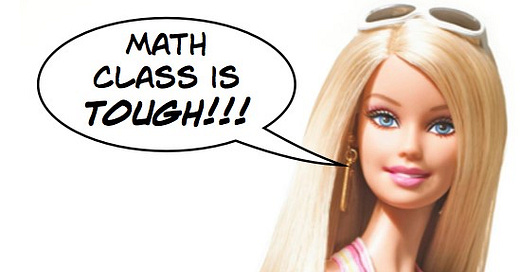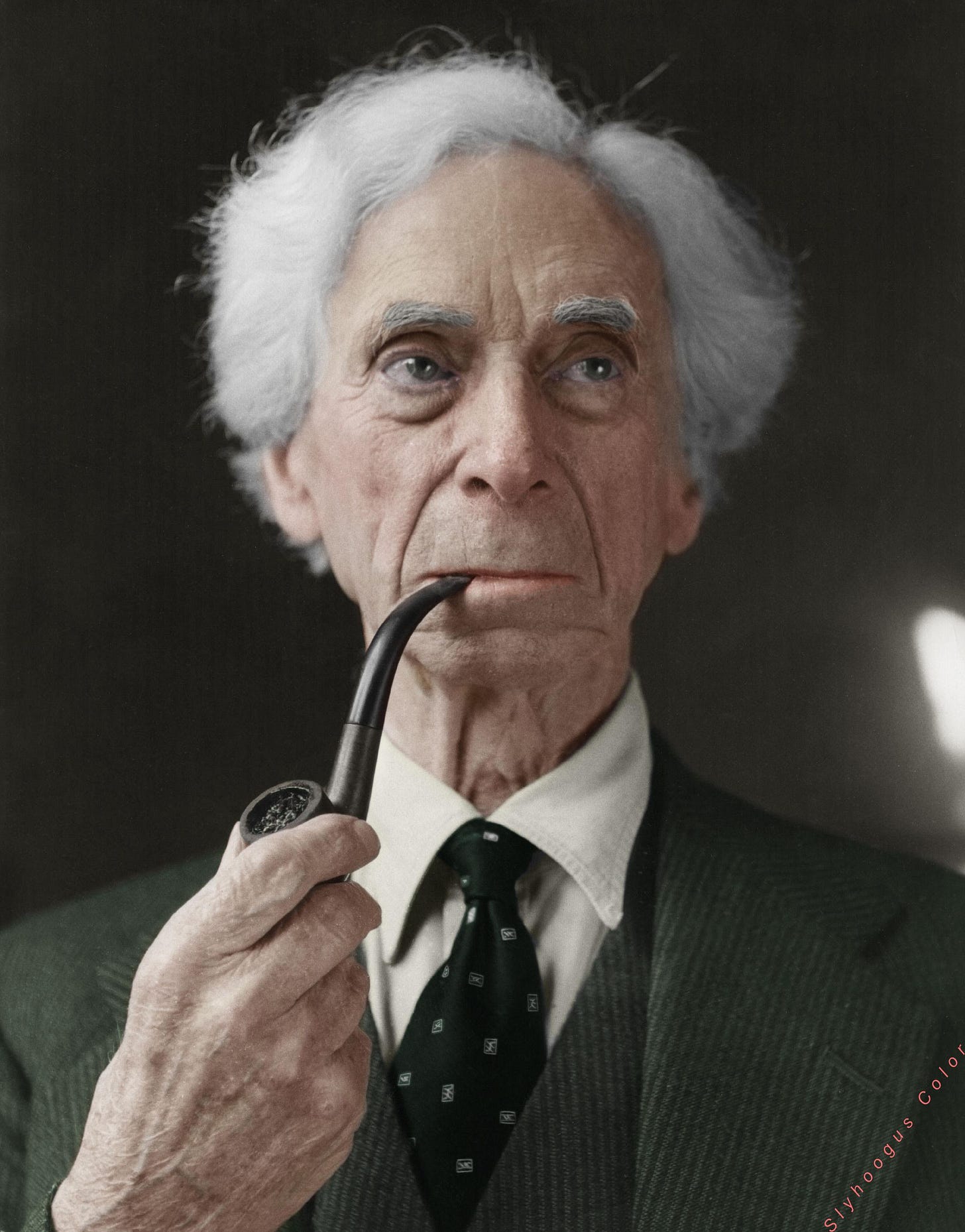I wanted to think about what exactly is the problem with stereotypes, so I asked Claude for a list of some common ones. I asked AI to come up with this list because I didn’t want to start by just cherry-picking whichever stereotypes were most psychological salient to me. Claude was rather reluctant, anxious to tell me that stereotypes are bad and hurtful and don’t reflect reality. But after some wheedling, eventually it came across with this list. AI sure loves bullet-points.
Gender-related:
Assuming women are less interested or capable in STEM fields than men
Expecting men to avoid showing emotions or seeking emotional support
Thinking women are naturally better at childcare or household tasks
Age-related:
Believing older people cannot learn new technology
Viewing younger generations as entitled or lazy
Assuming middle-aged people are stuck in their ways
Geographic:
Viewing people from rural areas as less educated
Assuming urban dwellers are disconnected from traditional values
Thinking certain regions are uniformly politically aligned
Professional:
Expecting accountants to be rigid and uncreative
Assuming artists are disorganized or impractical
Viewing salespeople as manipulative
Educational:
Thinking trade school students are less intelligent than university students
Assuming ivy league graduates are elitist
Viewing liberal arts majors as impractical
So what’s wrong with these stereotypes exactly?
Stereotype threat
One answer is stereotype threat: when one’s membership in a stereotyped group is highlighted, one tends to perform in conformity to the stereotype. For example, if girls are given a math test, but have to check a box at the beginning that they are female, then they do worse on the test. Supposedly this effect is due to girls subconsciously conforming to the stereotype that
The stereotype threat hypothesis was first proposed by Claude Steele and Joshua Aronson in 1995, and then enthusiastically cited over 6000 times. It’s not hard to see the political appeal of their idea: if a negative stereotype is true, it’s true just because of the stereotype itself.
Sweet! Steele and Aronson have discovered The One Weird Trick to improve performance—all we need to do is re-educate people out of using the harmful stereotype and the problem’s solved. The minute we stop stereotyping girls about believing math is tough they will start acing the exams; all along the harm was just caused by wrongthink. Good thing too. If the stereotype were true because of complex, multi-causal social or biological reasons, there’s no easy fix.
As should be expected, stereotype threat has fallen victim to the replication crisis. Informed popular discussion here, here, and here, research articles here, here, and here. I know, it’s incredible when One Weird Trick (that coincidentally flatters certain political views) turns out to be bogus. Truly shocking.
Anyway, my point is that if there is something bad about stereotypes, it’s not because of stereotype threat. That’s not a real thing.
Hasty generalization
Maybe the problem with stereotypes is that they lead to false beliefs. Let’s assume the stereotype is middle-aged people are stuck in their ways. Whether it is true depends on how is the claim is quantified. It is surely true that some middle-aged people are stuck in their ways. Likewise, it is obviously false that all middle-aged people are stuck in their ways. There are plenty of adventuresome middle-aged people who are open to new experiences, and I’m sure you can easily come up with examples from your own life.
Really, this is the pattern of all the supposed stereotypes. Accountants are rigid and uncreative. Well, sure, I expect that some are. Ivy League graduates are elitists. Again, there are bound to be a few. Artists are disorganized and or impractical. You can probably think of a couple of examples.
Now, it certainly would be pretty bad if people believed that stereotypes were universally and exceptionlessly true. There aren’t too many generalizations about human beings that are. However, I’m doubtful there are a significant number of people who truly think that every last middle-aged person is stuck in their ways, or any of the other stereotypes is invariably right.
I’m not going to argue that absolutely no one does. You can’t get 100% agreement on anything; I’m sure there are people who claim Elvis is still alive. Supposedly many Americans think chocolate milk comes from brown cows. People believe dumb stuff. However, stereotypes are not a serious problem just because there is a handful of smooth-brains who believe those stereotypes apply without exception. It’s like flat-earthers—they’re a clown car, not a genuine threat to Reason, Science, and The Social Order.
Maybe the problem is that people think stereotypes are mostly true and they are not? Well, lots of stereotypes really are mostly true. Men are physically stronger than women. Black people are more resistant to skin cancer than white people. Chinese women are slimmer than Mexican women. Christian nationalists are likelier to vote MAGA than Democrat. Smokers don’t live as long as non-smokers. African men are better endowed than southeast Asian men. The Dutch are taller than Guatemalans.
As long as people are believing something that’s true about the average man, woman, black, white, African, Asian, Christian nationalist, smoker, or whatever, without slipping into the error of thinking it is true of every single one of them, then what’s the problem? They’re believing the truth.
Stereotyped stereotypes
If stereotypes are supposed to be widely believed generalizations (whether true, false, or partly true), I’m doubtful that many supposed stereotypes really are widely believed. For example,
The typical Christian man is Ned Flanders: meek, gentle, tolerant, nice, and super jacked.
People who travel are running away from something.
Men will have sex with any woman who is willing.
I straight up deny that most people believe those things. Prove me wrong. I agree that there is a stereotype that those claims are commonly accepted; I just don’t think they really are. It is a stereotype that they are stereotypes. Obviously, somebody believes them, and there may even be uninformed or prejudiced groups who think they are true. As noted above, for any stupid thing you can find somebody somewhere who believes it. Getting worked up about that fact leads to insomnia:
Maybe this is the return of stereotype threat, only now at the meta level—we falsely believe that many people believe in inaccurate or negative stereotypes. Perhaps that’s the real problem. All we have to fear is fear itself.
Stereotypes as heuristics
I don’t think stereotypes are beliefs at all. They are heuristics. Heuristics are rules of thumb, easily defeasible guidelines that allow for quick judgments. For example, suppose you’re choosing players to be on your pick-up basketball team. You going for the 23-year-old or the 83-year-old? The 6’11” guy or the 4’11” one? The fit person or the fat one? Honest answers are pretty obvious. Once again, heuristics can be wrong. Maybe the 83-year-old is an in-shape ex-NBA player and the 23-year-old has never picked up a ball before. If you learn that fact, you’ll quickly revise your decision-making.
Or consider dating sites. They are all about engaging heuristics, whether it is a photo (this tattooed guitar player looks like the kind of guy for me, this preppy looking dude doesn’t; this cheerleader type is the sort of woman I want, not this chubby green-haired chick holding a Judith Butler book) or a self-description (“likes Coltrane, beat poetry, and croissants” sounds better than “likes Tool, mountain biking, and hot wings”). Malcolm Gladwell calls it “thin-slicing.” We take a little information and make a fast judgment.
All heuristics trade accuracy for speed; that doesn’t make it bad to use them. We often need to make snap judgments. What looks better on the menu, the sea bass or the filet mignon? You can’t spend all night polling other diners or reading reviews—there’s a short window and you need to choose. At some point, the gathering of evidence has to end and action has to begin.
Stereotypes are more of the same. Some heuristics are terrible ones; that’s one of the lessons of Tversky and Kahneman. Confirmation bias, the availability error, anchoring bias—we need to make sure we’re not falling for those when we reason. But accepting the stereotypes that smokers don’t live as long as non-smokers or African men are well-endowed gets us closer to the truth than withholding judgment altogether, even in full knowledge that there’s the occasional exception. We just need to remember that stereotype heuristics are fallible and be prepared to revise when more precision is needed.







I agree.
Though it must be especially frustrating for those unusual people who buck a stereotype hard to still be routinely—and understandably—mistaken for fitting it at first glance. Luckily I’m a perfect match with my stereotype, greasing the wheels of nearly all my interactions.
Aren’t heuristics just some of the simplest mental decision making models? As the models become more sophisticated and complex, we just start calling them something else.